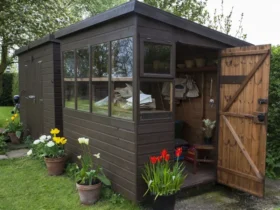Over 66% of unpaid caregivers suffer from at least one detrimental health symptom due to the stress of caring for a loved one. It’s easy to put yourself second when all of your time and energy goes to another person.
However, left unchecked, those symptoms escalate and fester until you’re burnt out. You won’t be able to care for yourself, and certainly not your loved one.
Keep reading to learn the different stages of caregiver burnout so that you can find the help you need to stay healthy.
1. Heightened Stress
Being a primary caregiver will always go together with a bit of stress, but you need to be careful not to let that stress become overwhelming. The first stage of burnout is when stress hinders your everyday life.
You’ll notice symptoms such as:
- Quickness to anger
- Troubles sleeping
- Brain fog
- Tense muscles
- Physical fatigue
- High blood pressure
2. Isolation
The next stage is when you try and pull yourself away from your friends, family, and responsibilities. Everything feels like it’s too much, so you isolate yourself from everything.
You may skip work or put off important tasks even if those tasks could lighten your stress.
3. Compassion Fatigue
At the last stage, you’ll hit what’s called compassion fatigue. It’s a type of caregiver fatigue that makes it almost impossible to properly care for another person because you’re drowning in a mental abyss.
You’ll find yourself no longer caring if you’re performing the tasks your loved one needs because you’re too burnt out.
Preventing the Stages of Caregiver Burnout
The good news is that there are many things you can do to prevent this burnout from happening or getting worse. With a few changes, you could be back to your old self again in no time.
Seek Help
There’s no shame in realizing that you need help. Often assisted living is the best choice for both the loved one and their caregiver.
The key is to find a place that makes the entire family feel comfortable and safe. For example, search your assisted living options near Mesa until you find the perfect match for everyone involved.
Support Groups
You’re not alone in your struggles and finding a local support group can bring new light to your life. You’ll get to talk to people who know exactly what you’re going through. Sharing tips and stories can be a cathartic experience.
Self-Care
Engaging in meaningful self-care gives you time to let loose and enjoy yourself. This can be any activity that makes you happy or relaxed, but you must make the time for it as often as possible.
Even a short soak in the tub can be uplifting and stress-reducing.
Don’t Neglect Your Own Health Needs
By understanding the stages of caregiver burnout, it’s easier to recognize and avoid. You have a lot on your plate as a caregiver, but you can’t neglect the things you need to stay healthy. If you’re burnt out, you won’t be able to care for your loved one how you want.
Whether it’s assisted living or more frequent self-care exercises, make sure to focus on yourself from time to time, too.
If you’re looking for more tips on balancing a healthy lifestyle, check out the rest of our Health section.
You may like – The Benefits of Choosing a Vinyl Fence Gate for Your Home






